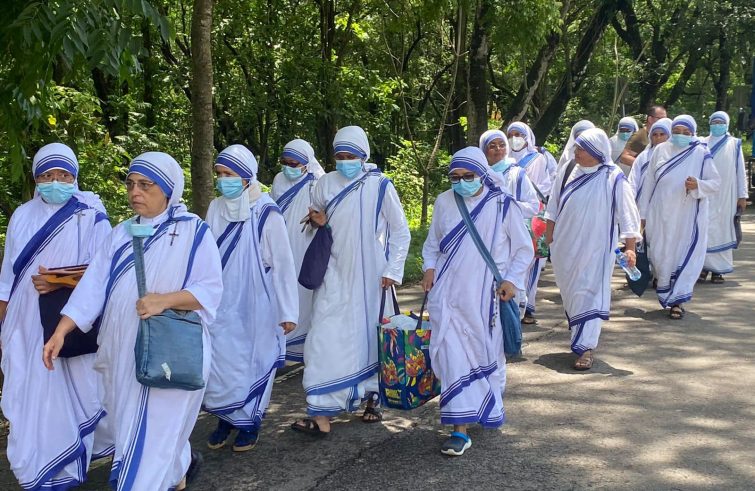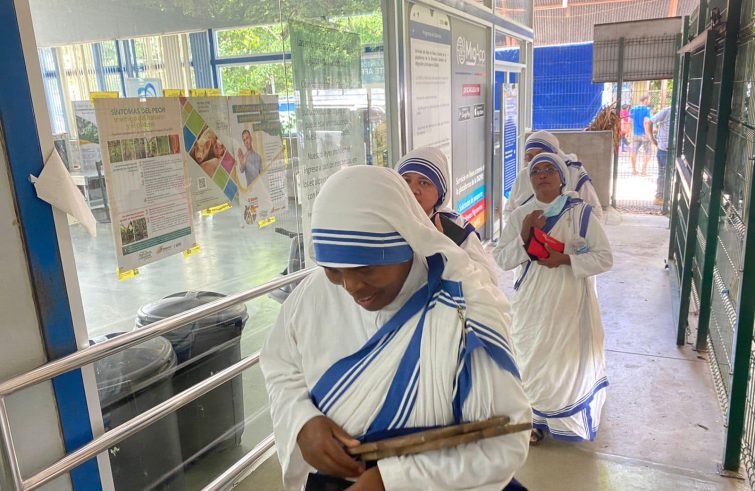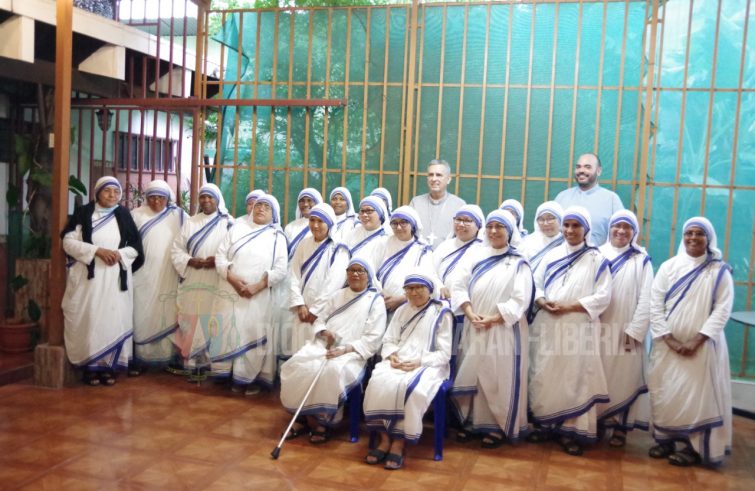
“It was very painful for us to leave the country, to leave our poor”, said Sister Agnesita, speaking to SIR from San José, capital of Costa Rica. She is one of eighteen Missionaries of Charity, an order founded by St Mother Teresa, expelled from Nicaragua following a decision by the regime of President Daniel Ortega, and his wife, Vice-President Rosario Murillo. A move that outraged the whole world, signalling the extent of the brutality and obtuseness of the incumbent Nicaraguan government, which has been silencing all free voices and persecuting the Catholic Church in particular, for months. Just to name the most relevant episodes of the last few months, such pressure has resulted in the expulsion of the Apostolic Nuncio, Msgr. Waldemar Stanislaw Sommertag, with continuous surveillance and threats against Msgr. Rolando José Álvarez, Bishop of Matagalpa and Apostolic Administrator of Estelí. But the measure against the Missionaries of Charity was seen as an utterly unjustified and senseless provocation. A rather paradoxical decision considering that Ortega – at the time a young Sandinista President – had personally met St Teresa of Calcutta in 1986, when the latter visited the country to attend the Eucharistic Congress. He had also pledged to facilitate the arrival of the Missionaries of Charity into the country. Furthermore, Vice President Rosario Murillo, on the occasion of Mother Teresa’s canonisation in 2016, had expressed her joy and congratulated the nuns.

“Our concern is to serve the poor.” The eighteen women religious had no alternative but to pack their few belongings and cross the border into Costa Rica, which thousands of Nicaraguans have been doing all along. They were welcomed into the neighbouring country by the Bishop of Tilarán-Liberia, Monsignor Manuel Eugenio Salazar Mora. Thereafter, they were given hospitality in the Missionaries of Charity house in San José, where SIR contacted by phone Sister Agnesita, who prefers to give only her first name. “Our sorrow,” she says, “is compensated by the warm welcome we received here. The Church of Costa Rica welcomed us with open arms. May the will of God be done.” The Sisters were actively present in three facilities in Nicaragua, two in Managua and one in Granada: “Our first centre in Managua was a home for the elderly, including a kindergarten, and we cared for the poor, providing them with a simple meal. The second facility was devoted to contemplative life. In Granada, we catered for teenage girls at high social risk. We also ran a kindergarten, a soup kitchen, and supplied the poor with food baskets. We were involved in catechetical activities, both in Managua and Granada.” The nun goes on: “The Government’s decision took us by surprise, we were forced to leave our homes immediately.
We never participated in political activism of any sort, and we remember that President Ortega had had the opportunity to meet Mother Teresa. Our concern has been always to serve the poor. Admittedly, the country is experiencing hardships, especially the Church, which is persecuted. There is no freedom. Also the economy is in dire straits, with mounting unemployment.”
For the time being the eighteen nuns, of different nationalities, will remain in Costa Rica: “We received a warm welcome. We are grateful to the bishop of Tilarán, and also to the priests, religious men and women, all the faithful. The migration office has also helped us in every way. Many people have reached Costa Rica after having been forcibly evicted from Nicaragua. We will take special care of them.”

The most repressive dictatorship on the continent. “‘There is little we can do, the repression perpetrated by Ortega and his wife does not spare any organisation”, remarks Israel González Espinoza from Madrid, a Nicaraguan journalist with expertise in the ecclesiastical sphere, forced into exile in the Spanish capital almost two years ago to continue reporting on the situation in his homeland. “In my opinion, Ortega’s dictatorship is the most repressive on the continent today, more repressive than Venezuela and Cuba. This dictatorship has reached unprecedented proportions, as evidenced by the measures taken against the nuns of Mother Teresa. The Sisters’ houses have already been occupied by the regime’s loyalists, holy images have been taken down, they removed all remaining evidence of the presence of the Missionaries of Charity.” The reporter gives us a snapshot of the degree of repression in the country today:
“Virtually all independent newspapers and television networks have been shut down, including the TV channel of the Bishops’ Conference. According to ACNUR, 6,000 people in Costa Rica are victims of political repression; more than 180 people are imprisoned for political reasons; 100 journalists have left the country. And the Church is subjected to growing persecution. Some bishops, like Bishop Álvarez, are under constant surveillance. A police patrol is stationed in front of Cardinal Brenes’ home, and follows him wherever he goes, keeping track of the people he meets. The Vicar General of Managua, Msgr. Carlos Avilés, reported a few weeks ago that forty homilies in parishes of the archdiocese are recorded every day. Catechism lessons are also wiretapped, including what the children say. We are facing a horrible degree of repression and brutality.”
But González firmly believes that the persecution of the Church is an own goal for the Government, while “the Church consolidates her image and credibility.” Ortega speculated about the arrival of Russian troops to exert pressure on the United States in the last few weeks, “…but I doubt it very much. Nicaragua is not a long way from the US, but it has no economic resources, no oil like Venezuela. Ortega’s Achilles heel is the economy. Most exports are directed to the US. And we are now facing an economic recession caused by Ortega himself. There are no jobs and people emigrate, either to Costa Rica or to the US. Many joined the migrant caravans, and several died in the Rio Bravo.” In any case, he concludes, “I remain convinced that the way forward must be a peaceful one. It may take more time, but it will be more successful. So far the people have not succumbed to the pitfall of resorting to the use of force and firearms.”


